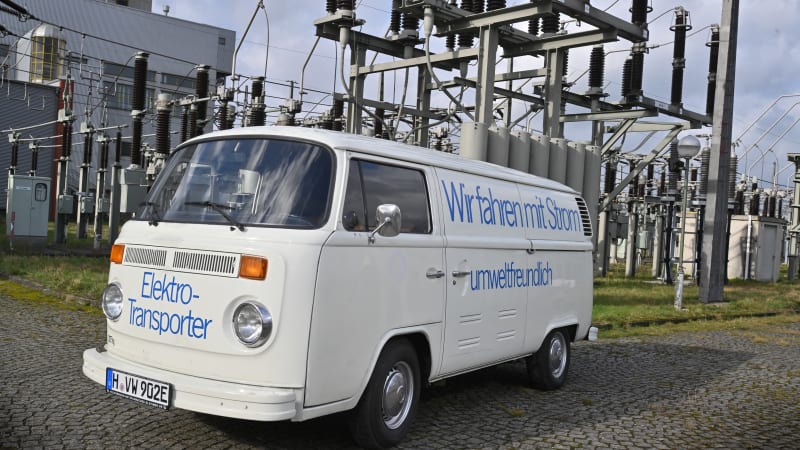This battery-powered 1972 Volkswagen Bus is the grandfather to the ID Buzz
https://ift.tt/39Q1GV5

The retro-styled ID Buzz EV Microbus concept that Volkswagen unveiled in 2017 is well on its way to production. While the model that inspired it happily slurped gasoline, the idea of making a zero-emissions people-mover isn’t new, and the German firm experimented with several primitive electric prototypes during the 1970s. It discovered one of the few remaining prototypes it built 48 years ago, and VW will highlight this obscure part of its past in March 2020.
Volkswagen began researching ways to electrify the Beetle and the Bus in 1970. It set up a sub-division within its engineering department and assigned it the development of an electric powertrain that could suitably replace the air-cooled flat-four that powered both models. This task was easier said than done; neither vehicle was designed with a bulky battery pack in mind. The spacious Bus was more straight-forward to convert than the Beetle.
After introducing the first Bus-based prototype at the 1972 Hanover Trade Fair, Volkswagen began building the model in extremely limited numbers and putting it in the hands of municipalities for real-world testing. The example that just joined the company’s heritage collection was built in 1972, and it was first registered in 1978 to the city of Berlin’s Drains Division. City officials set up a battery-swapping station in the Tiergarten district where mechanics could remove an depleted pack and replace it with a fully charged unit in approximately five minutes.
The specifications sheet reveals how stunningly far electric technology has come since the 1970s. The Bus used a 21.6-kilowatt-hour battery pack that delivered approximately 53 miles of range. Its Bosch-developed electric motor developed up to 43 horsepower, though its steady output checked in at 21, along with 118 pound-feet of torque. These specs are laughably outdated in 2020, and yet the powertrain was extremely innovative for the era; it even featured a kinetic-energy recovery system that kicked in when the driver applied the brakes.
No one has ever called a stock VW Bus quick, but the electric prototype took that slowness to a new level. It weighed nearly 4,800 pounds, compared to about 2,600 for the flat-four-powered model, so it ran out of breath at about 46 mph. Volkswagen noted that was acceptable because it wasn’t designed for highway use.
The electric Bus prototype will bask under the bright lights at the Techno Classica show, an event dedicated to classic cars, taking place in Essen, Germany, in late March. It will then join Volkswagen’s fleet of classic models, which also includes a similar Bus equipped with an experimental, 75-horsepower gas turbine. It’s not for sale, and neither is the resto-modded model Volkswagen recently equipped with an e-Golf drivetrain, but the people- and cargo-hauling variants of the ID Buzz concept are scheduled to enter production in Germany in 2022.
Auto Blog
via Autoblog https://ift.tt/1afPJWx
February 20, 2020 at 03:36PM
